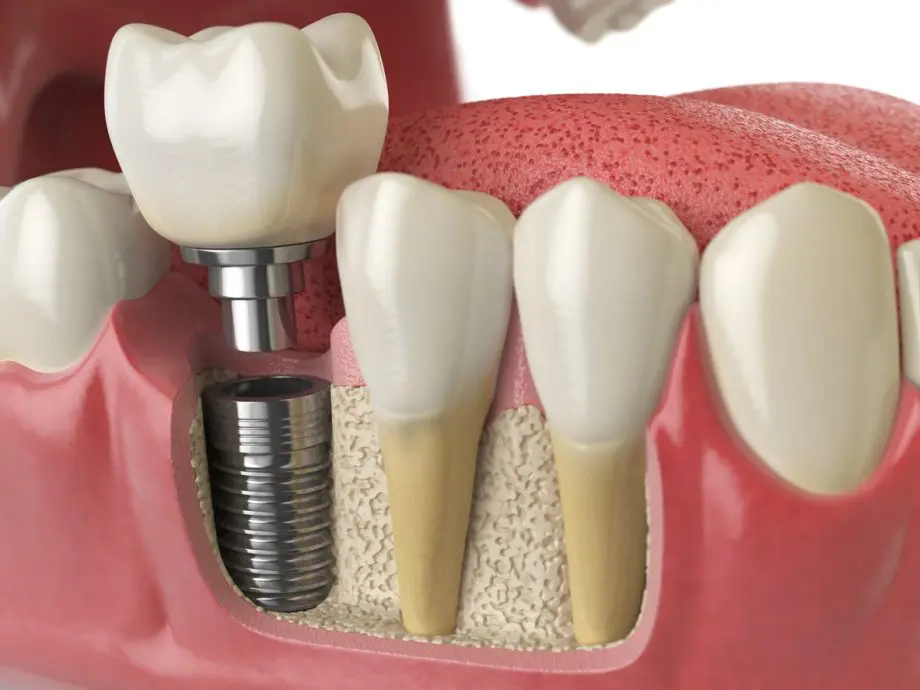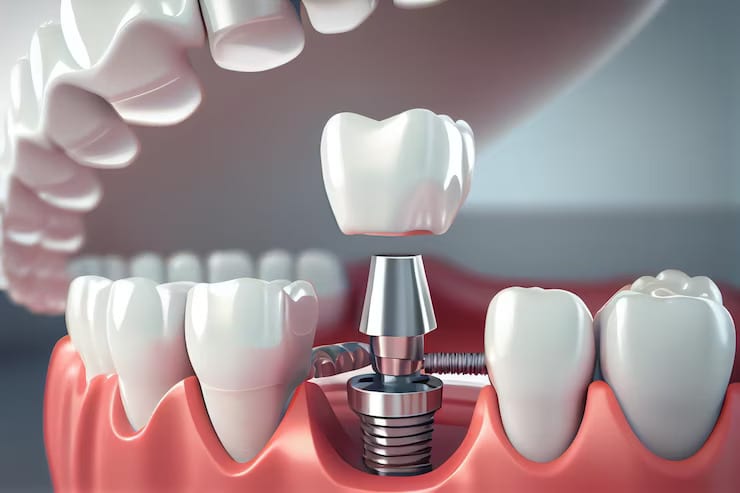Dental Care Associate Hartford OH Dental Implant Surgery
Dental Care Associate Hartford OH Dental Implant Surgery
Blog Article
Dentists Sunbury OH Dental Implant Types: Choosing the Right Solution
Dental implants have emerged as a well-liked selection for people looking for a long-term solution to tooth loss. One important facet of understanding dental implants entails their impact on adjacent teeth. This is especially important for guaranteeing the health and longevity of the entire dental structure.
When a dental implant is placed, it mimics the operate of a natural tooth root. By doing so, it helps preserve the integrity of the surrounding bone structure. Natural teeth depend on a balanced, interconnected system for support, and dental implants can contribute positively to that dynamic. The stability supplied by the implant allows for higher distribution of bite forces, which might prevent undue stress on adjacent teeth.
Dentist Office Sunbury OH Single-Tooth Implants: Everything You Need to Know
In circumstances the place a tooth is missing, the neighboring teeth may shift into the vacant space. This shifting can lead to misalignment and numerous other complications. By placing a dental implant, the danger of this shifting is decreased, because the implant acts as a placeholder that preserves the natural alignment of surrounding teeth. This preventive effect is crucial for long-term oral health and function.
Another necessary consideration is bone loss. When a tooth is lost, the jawbone within the space can start to deteriorate because of an absence of stimulation. Dental implants assist prevent this bone loss by offering the mandatory stimulation to the jawbone, very similar to a natural tooth root would. This preservation of bone not solely supports the implant itself but additionally contributes to the stability of adjacent teeth.
The kind of material utilized in dental implants, typically titanium, has a singular property of osseointegration, which means it fuses with the bone over time. This integration provides a sturdy basis for the artificial tooth while ensuring that the implant doesn’t negatively have an effect on surrounding buildings. As the implant integrates, it creates an environment that contributes positively to the health of the adjacent teeth.

Regular dental check-ups play a vital role in monitoring the influence of dental implants on adjacent teeth. Professional assessments may help establish any issues which will come up, making certain immediate treatment and sustaining the health of the whole dental arch. These evaluations might embrace X-rays to examine for bone density and the overall condition of the implant and surrounding teeth.
Johnstown Dental Hartford OH Dental Implants: Options, Costs, and Care
Oral hygiene practices are vital for individuals with dental implants. Proper brushing and flossing habits not only contribute to the longevity of the implant but additionally be sure that adjacent teeth stay healthy. Food particles and plaque that accumulate across the implant can cause problems, including peri-implantitis, an inflammatory condition that may have an result on surrounding teeth and tissues.
The positioning of dental implants can affect the health of adjacent teeth. If an implant is placed at an angle or not correctly aligned, it might result in elevated stress on neighboring teeth. This misalignment may trigger put on and tear on adjacent enamel, potentially resulting in cavities or other dental issues. Therefore, the talent and expertise of the dentist performing the implant procedure are paramount in attaining a profitable outcome.
In some instances, additional procedures may be necessary to organize the encompassing space for an implant. Bone grafting or sinus lifts may help create a better surroundings for the implant. While these procedures are aimed toward enhancing the site for the implant, they also serve to protect the health of adjacent teeth by creating a more secure foundation.
Dental Center Granville OH Understanding the Cost of Dental Implants (2024 Edition)

As dental technology evolves, developments in implant methods result in better outcomes. Improved imaging techniques and computer-aided design allow for more precise placements that reduce risk to adjacent teeth. With these advancements, the probability of problems that might arise from improperly placed implants diminishes considerably.
Post-operative care also performs a important role in making certain that adjacent teeth stay unaffected. Patients should adhere to the dentist's directions regarding food regimen, oral hygiene, and follow-up visits. Neglecting these guidelines could lead to complications that impact not solely the implant but also the neighboring teeth.
Dentist Office Galena OH Dental Implant Benefits
In conclusion, dental implants, when placed appropriately and cared for correctly, have the potential to reinforce the health of adjacent teeth quite than detract from it. They preserve alignment, stimulate bone growth, and supply a safe basis that supports the complete dental structure. Understanding how dental implants affect adjacent teeth emphasizes their importance as a long-term tooth replacement solution. With continuous advancements in know-how and strategies, the combination of dental implants into restorative dentistry is turning into more and more profitable, guaranteeing wholesome and useful smiles for years to come back.

- Dental implants prevent adjacent teeth from shifting into the hole created by a missing tooth, serving to to take care of proper alignment in the mouth.
- The rebuilding of the jawbone by way of an implant can stimulate surrounding teeth and hold them healthy by offering needed bone density that might otherwise diminish.
- Adjacent teeth benefit from the stabilization that dental implants provide, reducing the danger of damage and tear from misalignment throughout chewing.
- Implants can shield adjacent teeth by appearing as a framework, which may distribute bite forces evenly across the dental arch as an alternative of putting undue stress on neighboring teeth.
- When positioned correctly, dental implants decrease the chance of gum disease which may affect adjacent teeth by sustaining a clear and healthy gum line.
- The presence of an implant can facilitate an improved oral hygiene routine, because it eliminates the need for bridgework that could trap meals particles around adjacent teeth.
- Regular dental check-ups can reveal how nicely the implant integrates with surrounding buildings, making certain ongoing health for adjacent teeth.
- Implants can prevent the natural strategy of bone resorption that happens after tooth loss, positively impacting the steadiness and longevity of adjacent teeth.
- The use of dental implants might reduce the need for extra invasive procedures sooner or later, offering a long-term answer that maintains the structure of the entire dental arch.
- Successful integration of an implant into the dental arch enhances total oral operate, usually leading to improved confidence and oral health for adjacent teeth.undefinedHow do dental implants have an result on adjacent teeth?
What influence do dental implants have on the alignment of adjacent teeth?
Dental implants typically prevent the shifting of adjacent teeth, helping to maintain up proper alignment. This stability can reduce the risk of growing chunk issues over time.
Can dental implants trigger harm to nearby teeth?
When placed accurately by a professional skilled, dental implants should not damage adjacent teeth - Premier Dental Columbus OH. However, improper placement or inadequate planning might lead to complications
Dentist Centerburg OH Frequently Asked Questions About Dental Implants
Do dental implants require any special care relating to adjacent teeth?
Maintaining good oral hygiene is essential. Surrounding teeth should be brushed and flossed regularly, and routine dental check-ups will help ensure that both the implants and adjacent teeth remain healthy.

Will dental implants influence the health of my look at here surrounding teeth?
Dental implants can enhance the health of surrounding teeth by distributing chunk forces evenly, decreasing put on and tear. Additionally, they will prevent bone loss within the jaw, which might affect adjacent teeth.
Dental Care Granville OH Dental Implant Surgery
Are there any long-term effects of dental implants on nearby teeth?
Long-term, dental implants may help preserve the health of adjacent teeth by stopping shifting and potential gum points, finally contributing to raised oral health total. - Dental Center Galena OH
Can gum problems come up round adjacent teeth after getting implants?
If proper dental care is neglected, gum points may develop round each the implants and adjacent teeth. Following post-operative care directions is essential to attenuate these risks.
Dental Center Columbus OH The Best Dental Implant Services
How do dental implants compare to bridges when it comes to adjacent teeth?
Dental implants are sometimes useful as they don’t require alteration of adjacent teeth, in contrast to bridges, which necessitate reshaping of close by teeth for support. (Dentist Granville OH)
Can I still get Resources cavities in adjacent teeth if I even have dental implants?
Yes, adjacent teeth can nonetheless develop cavities if not correctly cared for. Dental implants themselves can't get cavities, but they require vigilant hygiene practices to protect surrounding natural teeth.
What is the success rate of dental reference implants in relation to surrounding teeth?
The success rate of dental implants is high, however it largely depends on the quality of the process and ongoing care. Well-maintained implants often lead to better outcomes for adjacent teeth as nicely.